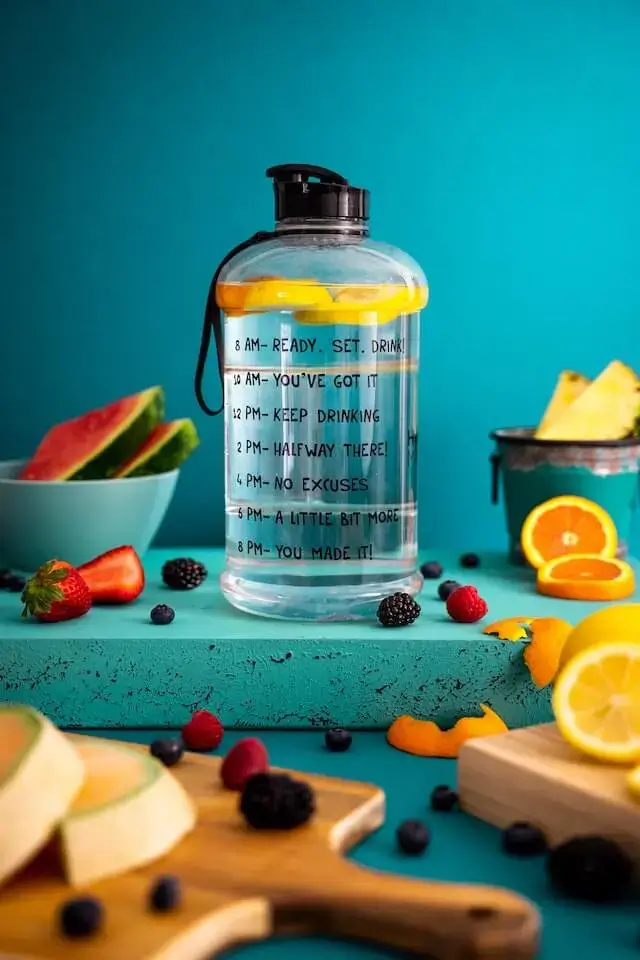Foods to Boost Your Heart Health: If you want to boost your heart health and live a long, healthy life, it’s important to eat the right foods. The following list of foods that s full of nutrients that can help keep your ticker running smoothly for years to come:
Beans
Beans are a good source of fiber, which can help reduce cholesterol. Beans are low in fat and calories, making them an ideal food for weight loss if you choose to eat them instead of other high-fat foods. Beans can also be used to make a healthy meal: try putting black beans or kidney beans on top of your salad!
Beans are a nutrient-dense food, meaning that they contain many vitamins and minerals in just a small amount. They’re also high in fiber, which can help you feel fuller longer.
Citrus fruits and berries
- Citrus fruits and berries, such as oranges, grapefruit, tangerines and red grapes, are the best way to get your daily dose of antioxidants. Antioxidants help prevent heart disease by reducing inflammation in the arteries.
- Other foods that contain high concentrations of antioxidants include tea (green or black), apples, pears and blueberries.
- Although it’s still unclear exactly how many antioxidants you need each day for optimal heart health benefits, try to incorporate as many antioxidant-rich foods into your diet as possible for a healthy heart and body!
Foods to Boost Your Heart Health: Citrus fruits and berries
- Citrus fruits and berries, such as oranges, grapefruit, tangerines and red grapes, are the best way to get your daily dose of antioxidants. Antioxidants help prevent heart disease by reducing inflammation in the arteries.
- Other foods that contain high concentrations of antioxidants include tea (green or black), apples, pears and blueberries.
- Although it’s still unclear exactly how many antioxidants you need each day for optimal heart health benefits, try to incorporate as many antioxidant-rich foods into your diet as possible for a healthy heart and body!
Foods to Boost Your Health: Leafy greens
- Leafy greens: This category includes kale, spinach and collard greens. These vegetables are rich in vitamins A and C, as well as fiber. They’re also low in calories and can help detox your body.
- Fruit: Blueberries are a great choice because they contain antioxidants that protect the heart. Other fruits such as oranges and grapefruit have a similar effect.
Olive oil
The next food you should be eating more of is olive oil. It’s rich in monounsaturated fats, which can help lower LDL cholesterol. Olive oil also contains antioxidants that help reduce inflammation, which can lead to heart disease. In addition to these benefits, olive oil is a good source of vitamin E, which helps protect your heart.
To get the full benefit from this versatile cooking ingredient, use it on salads or drizzle it over cooked vegetables like broccoli or carrots—or even add it to homemade soups and stews for an extra flavor boost!
Nuts
Nuts are healthy for your heart, as they’re a good source of protein, fibre and other nutrients. They are also high in fat and calories, so you should eat them in moderation. In addition to the nutrients found in nuts, some types have been linked to lowering cholesterol and managing blood pressure.
For these reasons, nuts are included on many doctors’ lists of foods that boost heart health. Nuts can be used in a variety of recipes including salads or desserts; try sprinkling chopped walnuts over your next bowl of cereal or try this recipe for pecan pie bars!
Fatty fish
Fatty fish, such as salmon and sardines, are a great source of omega-3 fatty acids. Omega-3s have been shown to reduce blood pressure, improve blood flow and lower triglycerides while raising HDL (the good) cholesterol levels.
Preparation: Eat as is or top with lemon juice, salt and pepper to taste (or enjoy it grilled).
When to eat: Just about any time you’re hungry!
Oats and barley
- Oats, barley and other whole grains are good sources of fibre. Fibre makes you feel full and reduces appetite, which helps you avoid overeating.
- Oatmeal is a great source of beta-glucan—a type of fibre that can help lower cholesterol levels in your blood.
- One cup of oatmeal contains 15% of the daily value for magnesium, which keeps blood pressure down by regulating calcium levels in your body and relaxing blood vessels so they don’t get constricted too easily when your heart beats faster (like during exercise). Magnesium also works with vitamin B6 to form red blood cells, which carry oxygen throughout your body; help cells use glucose properly, and plays an important role in helping proteins function normally.* Oats contain phosphorus, manganese and iron as well as some B vitamins including folate and thiamine.*
Garlic
Garlic can help reduce blood pressure, cholesterol levels and inflammation. A study published in the journal BMC Complementary and Alternative Medicine found that garlic could be an effective treatment for high blood pressure. The researchers found that participants who took garlic supplements for 12 weeks lowered their systolic and diastolic blood pressure by an average of 6 mmHg.
Seeds
Seeds are a healthy source of unsaturated fats and omega-3 fatty acids, which can help lower your LDL (bad) cholesterol and triglyceride levels. They’re also high in fibre, antioxidants, vitamins A & E, folate and potassium.
Avocado is high in fibre, which can help lower your cholesterol and blood sugar levels. It also contains folate, a B vitamin that’s important for fetal development and may reduce the risk of certain birth defects.

